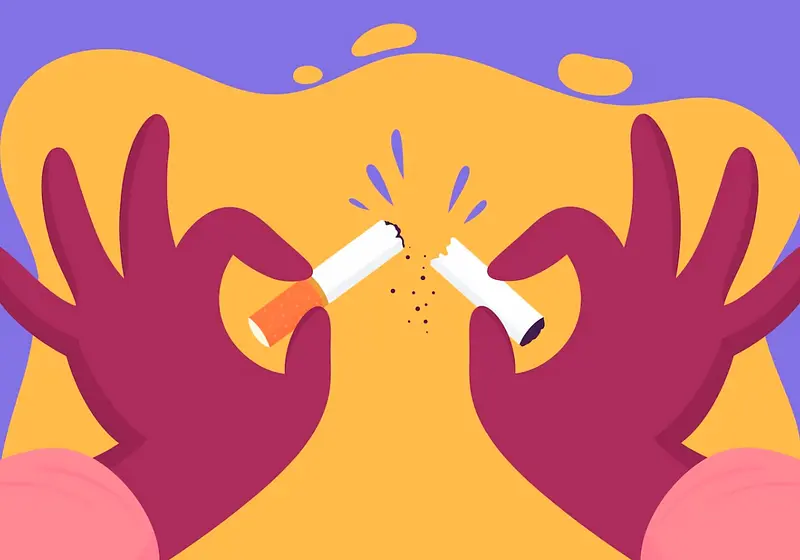According to a study released by the Stanford University School of Medicine in May 2020, which tested 4,000 plus participants between the ages 13 to 24, “those who vape are five to seven times more likely to be infected by the COVID-19 virus than those who did not use e-cigarettes” because of the lung damage caused by vaping and e-cigarettes.
The study also revealed that while young people may feel protected from the virus, which is known to affect the older population much worse, this is not the case for young people who vape or dual-use e-cigarettes and cigarettes. Out of all the young people tested, those who had used combustible cigarettes or vaping devices in their lives were “5 times more likely to be diagnosed with COVID-19 than nonusers.”
Image Credit: Mohamed_hassan from Pixabay
Let us slide into your dms 🥰
Get notified of top trending articles like this one every week! (we won't spam you)Protect Our Lungs & Keep Them Healthy
Now more than ever, as the pandemic wreaks havoc upon lung health with symptoms such as mild-critical breathlessness and sometimes pneumonia, every breath is precious. We need to protect our lungs and keep them healthy.
The Teen Magazine had the opportunity to interview Dr. Panagis Galiatsatos (M.D., MHS) about vaping, big tobacco, and lung health during COVID-19.
Dr. Galiatsatos is a Volunteer Medical Spokesperson for the American Lung Association, as well as Assistant Professor at the Johns Hopkins School of Medicine with expertise in the areas of ‘pulmonology, tobacco cessation, public health, and youth vaping.'
Take the Quiz: Are you "Delulu"?
Are you grounded in reality, or letting your overthinking run the show?
Vaping, E-cigarettes, and Lung Cancer
The simple answer, according to Dr. Galiatsatos: "Yes, vaping and e-cigarettes have the potential to cause cancer."
E-cigarettes are a tobacco product found in various forms, which include “e-pens, e-pipes, e-hookah, and e-cigars, known collectively as ENDS—electronic nicotine delivery systems, JUULs, "vapes" and "vape pens,” according to the American Lung Association's website. While the relative risk of smoking e-cigarettes is less than traditional cigarettes, it does not mean that the risk is zero.
“The thing I always want people to be aware of is that our lungs are intended for air. That’s it," Dr. Galiatsatos tells us, "If you’re adding things that aren’t air, you’re taking a massive risk of a variety of impacts on the lungs that can result in certain diseases such as cancer. We know that a variety of the chemicals found in e-cigarettes have been linked to cancer, such as formaldehyde, which is the chemical used to preserve dead bodies."
Other chemicals with high toxicity (if inhaled) within e-cigarettes are propylene glycol and vegetable glycerin, as well as nicotine, all of which can contribute to irreversible lung damage.
Since around 5 million young people vape or use e-cigarettes, the American Lung Association has worked on public policy against the Food and Drug Administration (FDA) for contributing to the rise in their usage.
According to 2016 data from the Centers for Disease Control and Prevention and the FDA, 31% of students use e-cigarettes because of the availability of flavors such as “mint, candy, fruit, or chocolate.”
To counteract this, in March 2018, the American Lung Association filed a lawsuit against the FDA for keeping e-cigs and “candy-flavored” vaping devices on the market for youth consumption without reviewing its public health risks/benefits.
However, despite the promise of the 2019 U.S. administration to empty the market of flavored e-cigs, the promise was never fulfilled, and the use of e-cigs by high schoolers increased by 27.5% in 2019.
Breaking the Trend of Social Smoking
Tobacco use amongst teenagers begins as social smoking and eventually becomes daily smoking, but according to smokefree.gov, 9 out of 10 high schoolers don’t smoke cigarettes.
“How did combustible cigarette use drop to the lowest percentage in the 2000s? What happened magically was public policy which made it harder to access them and made it “uncool” because what attracts the youth is that coolness factor."
Image Credit: Clker-Free-Vector-Images from Pixabay
"The American Lung Association, along with other partners, made a push to ensure that we did not see cigarette use on TV and in movies to prevent them from influencing the younger generations," informs Dr. Galiatsatos.
"We made cigarettes unattractive, but e-cigs took advantage of that by making them attractive again via social media campaigns and cooler vaping devices. Economically, the popularity of the product is dependent on the attractiveness of the product. Break that, and we’ve got ourselves a win."
Weed Smoking and Lung Damage
According to the Cannabis Research Initiative UCLA, many young adults are using recreational drugs such as [censored] to de-stress from the psychological impact of the pandemic.
Regarding any correlation between smoking weed and lung damage, Dr. Galiatsatos reiterates his advice on how our lungs are only intended for air, nothing else. It could be detrimental to your overall health if you smoke [censored] and are infected by COVID-19, as the inflammation within our airways caused by repeated weed-smoking could be severely aggravated by an infection to the point of an “overblown immune reaction,” which can kill.
Image Credit: chaiyananuwatmongkolchai from Pixabay
Correlation With Mental Health
“Mental health cannot be dismissed; it’s important that people who are using products for the management of their mental health are cognizant that these are products no different from a band-aid on an open wound," Dr. Galiatsatos says.
"Ideally, you want to fix the wound, not merely stop the bleeding, so what I would strongly encourage is to find appropriate means to handle stress, anxiety and mental health consequences."
"Recreational drugs will give you a transient effect of feeling good, but it doesn’t get to the root of the problem. If you find yourself needing medication just to get by, you need someone to talk to because these challenges will create their own in the future, such as pulmonary complications,” says Dr. Galiatsatos.
Maximizing Lung Health During COVID-19
Given that COVID-19 has had mortal consequences related to lung damage via pneumonia and mild-critical breathlessness, we need to build up our lung's strength or capacity at home during the pandemic.
“Your lungs are amazing organs that adapt to how you use them. If you never use them or constantly sit without any physical activity, they won’t evolve to work at higher capacities if you should ever use them to that extent." Dr. Galiatsatos states.
"The best way to help your lungs is exercise or engagement in a rigorous activity that allows your lungs to become stronger. That way, if, god forbid, you’re impacted by a virus or an infection, you have plenty of physiological reserves to help you and be strong enough to withstand it,” advises Dr. Galiatsatos.
He also advises those with no at-home gyms to make one's daily chores a workout by timing oneself and getting them done faster every day in order to get the heart racing. “Something that gets your heart racing is a good surrogate to saying that your lungs are being utilized a lot more,” he says.
Image Credit: AndrzejRembowski from Pixabay
Additional Resources
Check out the American Lung Association’s website for any recommendations or online resources for teenagers/young adults dealing with respiratory problems related to nicotine addiction.
The ALA website gives you a greater insight into tobacco products which helps inform you and others of the reason why these products are so harmful to one’s wellbeing.
For the management of addiction, talk to your health care professional. These diseases need a chronic care strategy for managing them.
Get support.
"People use these products for mental health benefits, but nicotine’s impact isn’t a high as it has more of a calming effect. We gave cigarettes to soldiers when they went off to war as it calms them and doesn’t derail them or take away their ability to think. A lot of young people are using them to experience that same effect and to reduce the stress of being a teenager in 2021. Get a support group of people who won't judge you/ stigmatize you as you try to get off these products,” says Dr Galiatsatos.
Many thanks to Dr. Galiatsatos for the words and for the American Lung Association for this interview opportunity! Remember, keep your lungs healthy and safe.

















